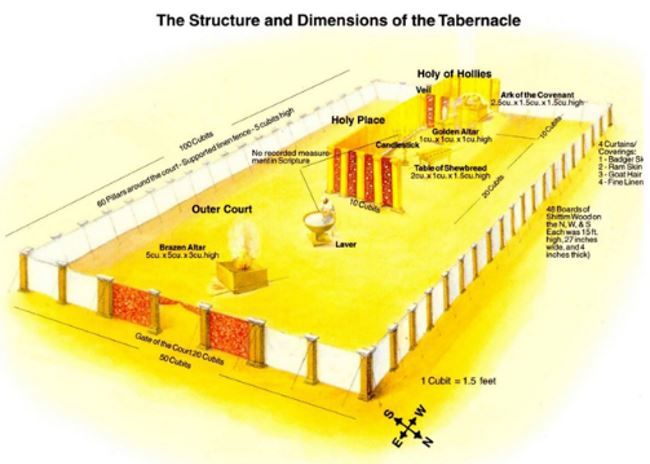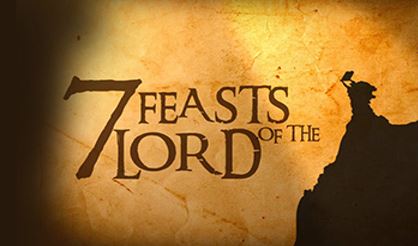God’s Appointed Pathway
The Seven Feasts of Israel
“The Day of Atonement”
Leviticus 23:1-2, 26-32
Wayne J. Edwards, Pastor
This year, the “Day of Atonement” starts at sunset, October 4, and ends at sunset, October 5, which also ends the “Ten Days of Awe” that begins at sunset, September 25, with the celebration of “Rosh HaShanah,” the Jewish New Year.
- Yom Kippur, or the “Day of Atonement,” is still respected as the holiest day of the year in Judaism.
- The Jews will stop all regular activity for 24 hours and spend most of the day in prayer, repenting for their sins for the last year.
- They will fast from eating to symbolize their desire to cleanse their body and purify their soul from the effects of sin.
- They will wear plain clothes to symbolize their humility and desire to be free from all worldliness.
- They will attempt to reconcile their conflicts with others to show God their sincere desire to be reconciled with Him.
- Without a temple or a priesthood, there can be no animal sacrifices or priestly prayers. Sadly, since none of these activities can cancel their sin, as with the other seven events, it will need to be repeated every year.
The Day of Atonement is the sixth of the seven days God instructed His people to set aside each year as “holy unto Him.”
- While the initial purpose of those seven events was to show the Israelites what was required of them to worship Him, God also designed them to reveal His plan for the redemption of lost man, for they all pointed to the Person and work of Jesus of Nazareth.
- God established these seven annual events as dress rehearsals for what His Son would do to achieve our eternal salvation.
- Each feast had two fulfillments – one by the Jews on that day and the other by Jesus at His first or second coming:
- The four spring feasts rehearsed the Lord’s first coming.
- Jesus was crucified on Passover, buried on the Feast of Unleavened Bread, rose from the dead on the Feast of Firstfruits, and the Holy Spirit was poured out on those first believers on Pentecost, just as Jesus said He would.
- The three fall feasts rehearsed the Lord’s second coming:
- The Feast of Trumpets points to the Lord’s coming for us.
- The Day of Atonement points to the Lord coming with us.
- The Feast of Tabernacles points to the Lord’s 1000-year reign upon this earth as King of Kings and Lord of Lords.
- These seven feasts reveal the complete picture of God’s plan for our salvation, with the sixth one being Yom Kippur, or the Day of Atonement, the day Jesus will reveal Himself to the remnant of the Jews who will be hiding in Petra, and they will be saved.
 |
The courtyard of the tabernacle was 150’ long by 75’ wide. There was a bronze altar where the sacrifices were performed and a bronze laver where the priests washed their hands. The tabernacle had two rooms – the Holy Place, and the Holy of Holies. |
The purpose of the Tabernacle was to give the Israelites a place of worship while they were in the wilderness. It was in this Holy Place and in the Holy of Holies that Aaron would go once each year to make atonement for the sins of the people. The tabernacle and temple served as the place where the Jews could find covering for their sins.
In Leviticus16:1-34, God instituted the Day of Atonement.
- The event was to be observed every year on the seventh month, on the tenth day of the month.
- All Sabbath laws were to be observed – no work at all
- It was to be a time for atoning – humility and reconciliation
- It was to be a day of total rest – fasting and prayer
- The priest must purify themselves before and after carrying out their assignments and wear special clothing.
- Seven principles of worship are illustrated in this passage:
- We cannot come before God on our own terms.
- The atonement for our sins requires a blood sacrifice.
- A mediator is required to make the sacrifice for us.
- The mediator must first make a sacrifice for himself.
- Sin is only covered by the blood, not removed.
- The offering is to be made for known and unknown sins.
- For sins to be covered by the blood, they must be verbally confessed and repented.
In Isaiah 53, the prophet revealed how the Messiah would fulfill the requirements of the atonement.
- He was the Messiah who bore our griefs, our pains, and our sorrows.
- He was the Messiah who took upon Himself the whip strokes that were due to us.
- He was the Messiah who was punished that we might be forgiven; that was wounded that we might be healed.
- He became sin so that our sin could be made righteous in His righteousness
- He died our death so that we might share His life.
- He endured our curse so that we might receive His blessing.
- He suffered our poverty that we might share His abundance.
- He bore our shame that we might partake of His glory.
- He endured our rejection that we might know His acceptance.
- The ‘old man’ in Him was put to death that the ‘new man’ in us might live.
- That’s what is meant by substitutionary – He took our place!

The death of Jesus of Nazareth fulfilled the Day of Atonement for the Gentiles but not for the Jews. There is a Yom Kippur to come for the seed of Abraham, which will occur at the end of the Tribulation.
- Jeremiah 3:12-14 – “Return, backsliding Israel, and I will not cause My anger to fall on you.” – God said He would restore those Jews who acknowledged their sin, repented of it, and then returned to Him. That will be the day of atonement for them.
- Ezekiel 36:16-37 – “I will take you from among the nations and bring you into your own land.”
- God Will Restore the fruitfulness of the land – Ezekiel 36:8-9
- God will Restore & Repopulate the cities of Israel – Ezekiel 36:10-12, 33-37
- God will Regather Jews to the land of Israel – Ezekiel 36:24
- God will Cleanse them from their impurities – Ezekiel 36:25, 33
- God will Regenerate Israel Spiritually – Ezekiel 36:26, 29
- God will give His Spirit to move them to walk in His laws – Ezekiel 36:27
- God will be their God & they will live in the land He gave their forefathers – Ezekiel 36:28
- God will make the land of Israel abundantly productive – Ezekiel 36:29-30
- Israel will remember former evil ways and will loathe themselves – Ezekiel 36:31
- God will do all of these things for the sake of reputation, His Name – Ezekiel 36:22, 32
- Zechariah 12:10 – “I will pour out on the House of David, and on the inhabitants of Jerusalem, the spirit of grace and supplication.”
- Many Jews will accept the Antichrist as the Messiah during the first half of the Tribulation. However, after the Antichrist enters and desecrates the Temple, the Jews will realize how they have been deceived and will flee to the mountains of Petra, where they will remain for 1260 days and where God will miraculously provide for their every need. (Revelation 12)
- As the Antichrist leads the armies of the world to come against Jerusalem in the Battle of Armageddon, the veil of unbelief will be removed from their hearts, and they will cry out unto God.
- Romans 11:26-27, “And so, all Israel will be saved, for this is My covenant with them, when I take away their sins.”








